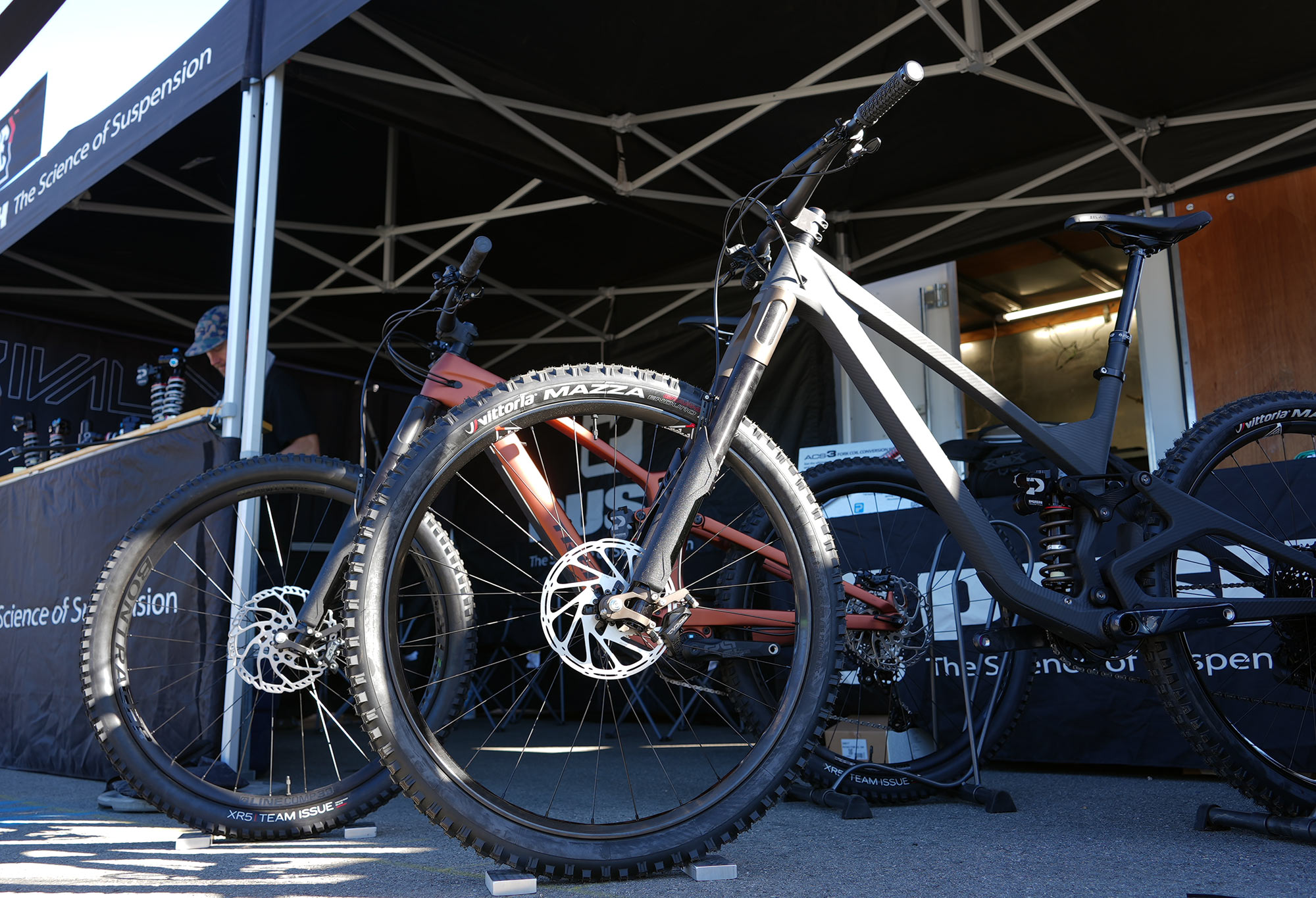PUSH founder Darren Murphy wasn’t letting on what’s inside their upcoming inverted suspension fork, but shared a few thoughts on why they did and what sets it apart from past attempts to bring a mid- to long-travel trail and enduro fork to market with an upside down design.
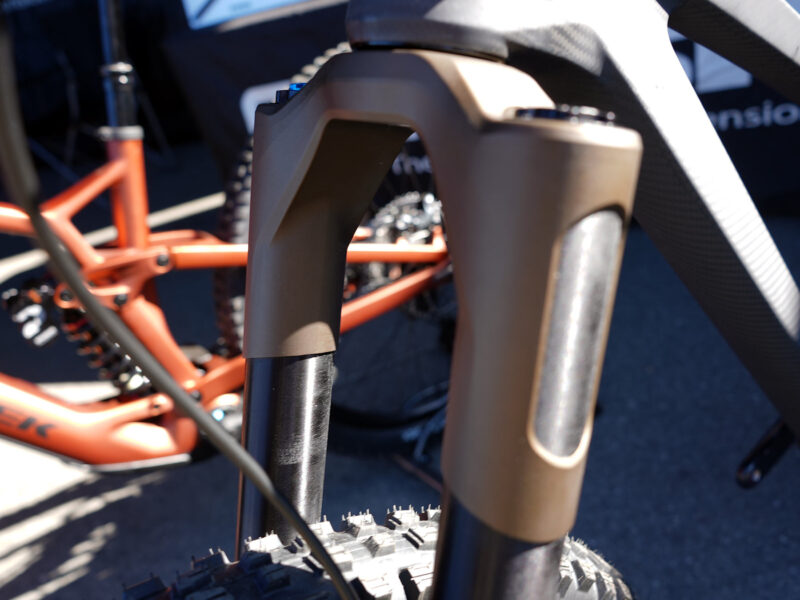
One of the most visually unique features is the deep crown, coming far down the alloy upper legs. He says the moto industry figured it out long ago that the way to make an inverted fork stiff enough is the relationship between the crown and the legs, and tapering the legs appropriately.
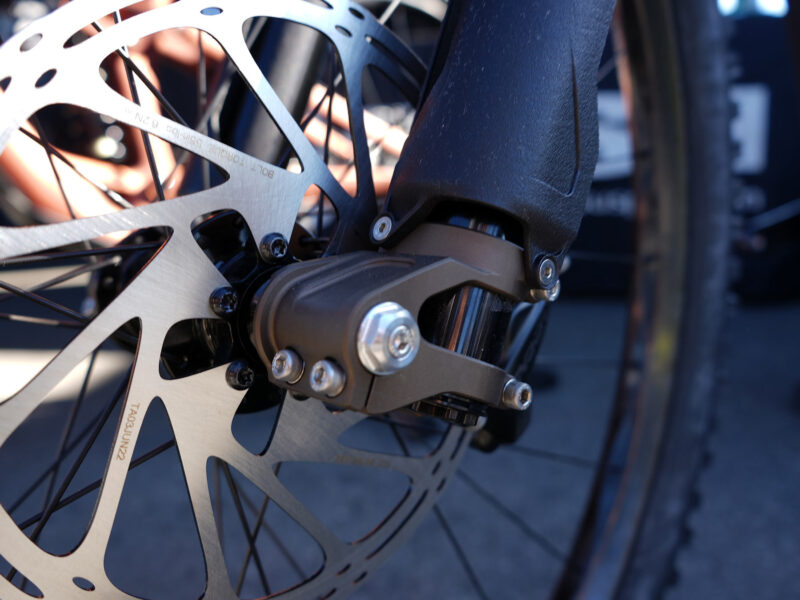
Another critical part is keeping the stanchions sliding in tandem, and oversized dropouts with a pinch bolt design. Thick dropouts mean longer axles, which means more overlap on either end, which will also improve stiffness.
We’re guessing it’s sticking with the common 15×110 Boost dimensions, but would also guess it’ll be a floating axle design to keep everything perfectly aligned.

The dropouts bolt to the stanchions, too, which could allow for a modular design. Rebound (presumably) controls are on the bottom…
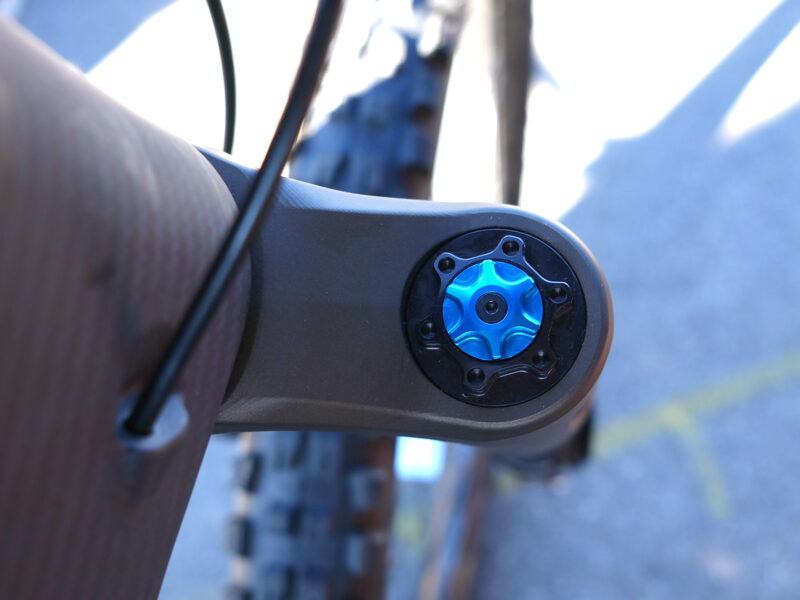
…and compression controls up top. Both have surrounds that look to thread out, making it easy to remove any damping cartridge, likely without having to disassemble the entire fork.
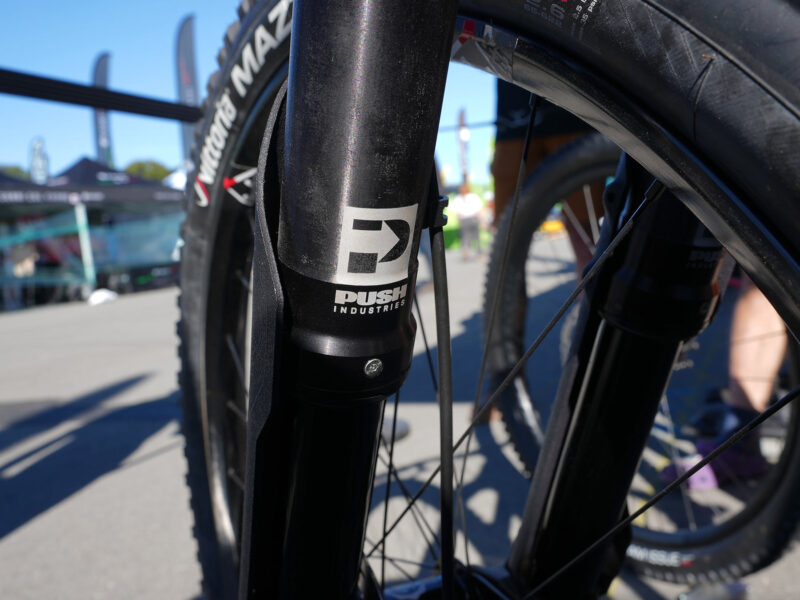
Another interesting little bit is this bolt on the backside. We’re thinking it’s one of three things:
- It holds a lower bushing/seal/cup in place that captures the lowers in the uppers, which could also act as a top-out bumper.
- It’s a lube/grease port
- It holds a “key” in place and the stanchions have a (or likely multiple) flat face or slot inside the upper that prevents the lowers from spinning around when the wheel and axle are removed.
It’s a hex bolt, so it’s probably not a pressure release valve. Any other guesses?
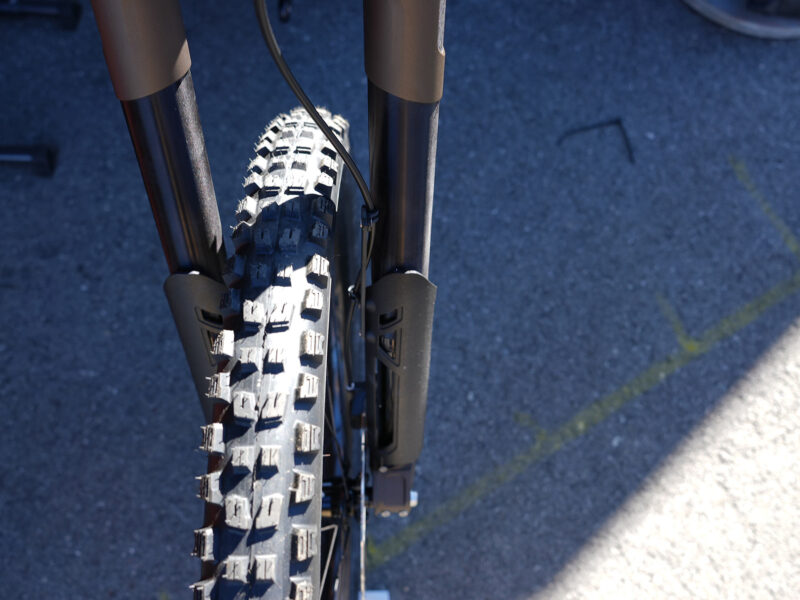
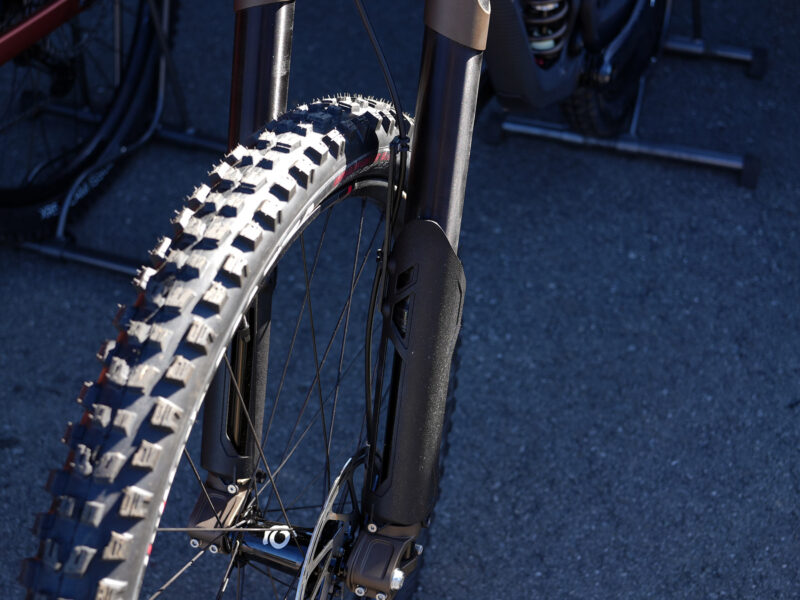
The brush guards shown here are 3D-printed to dial in the fit, but production versions will be injection-molded plastic.
No word on travel or price, but it should be available this summer. It’s shown here on the Trek Fuel EX-e (150mm fork) and We Are One Arrival, which comes in 152mm and 170mm rear travel variants, so it’s aimed at Trail and Enduro riders. Official specs will be available when they formally announce it, which could be as early as May.
